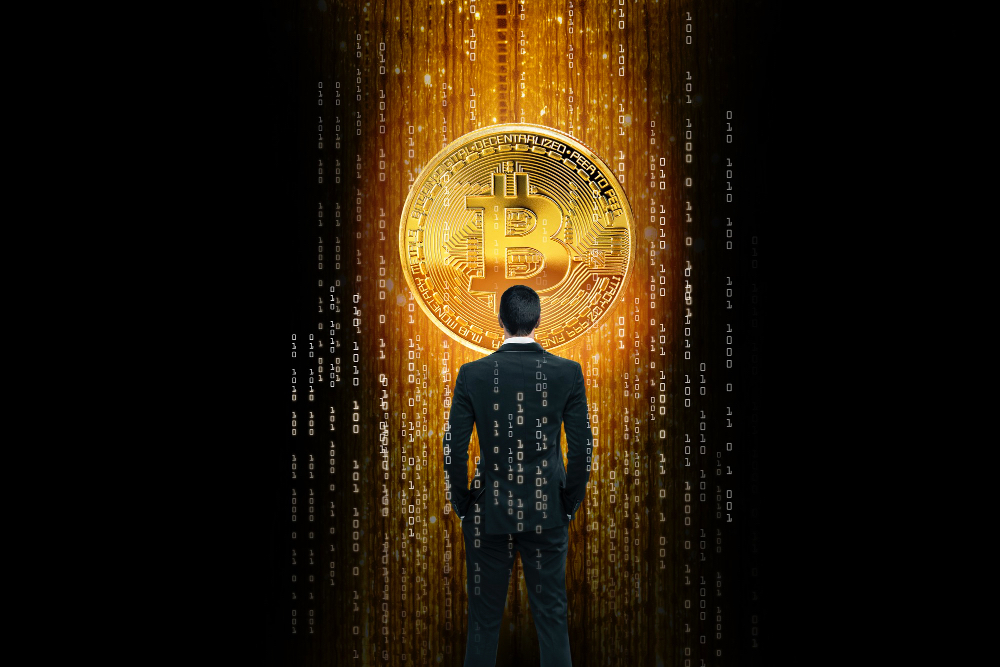Corruption corrodes the fabric of societies worldwide, eroding trust and impeding progress. Bitcoin, a decentralized cryptocurrency, emerges as a potential antidote to this global plague, offering transparency and accountability. This article delves into the dynamic relationship between Bitcoin and the fight against corruption, exploring its transformative potential and addressing the challenges it faces. Connecting traders with top-notch educational experts, Quantum AI serves as a pivotal link for investors seeking guidance from seasoned professionals.

Post Contents
Understanding Corruption: A Global Menace
Corruption, a ubiquitous menace, permeates every facet of society, corroding the foundations of trust and integrity. Defined as the abuse of entrusted power for personal gain, corruption manifests in various forms, from embezzlement and bribery to nepotism and cronyism. Its insidious grip extends across borders, affecting both developed and developing nations alike.
In the realm of governance, corruption erodes democratic principles, undermining the rule of law and eroding public trust in institutions. Developing countries, in particular, bear the brunt of its adverse effects, as scarce resources meant for public welfare are siphoned off by corrupt officials, perpetuating poverty and inequality.
Moreover, corruption impedes economic growth by deterring foreign investment and stifling innovation, creating a vicious cycle of underdevelopment.
Bitcoin: A Revolutionary Tool Against Corruption
In recent years, Bitcoin has emerged as a disruptive force in the fight against corruption, leveraging the principles of decentralization, transparency, and immutability to challenge the status quo.
Unlike traditional fiat currencies, Bitcoin operates on a decentralized ledger known as the blockchain, which records all transactions in a transparent and tamper-proof manner.
This inherent transparency makes Bitcoin transactions traceable, deterring illicit activities such as money laundering and corruption.
Case studies from around the world showcase Bitcoin’s potential as a tool for combating corruption. In Venezuela, ravaged by economic crises and hyperinflation, Bitcoin has provided a lifeline for citizens seeking to preserve their wealth amidst currency devaluation.
Likewise, non-profit organizations leveraging Bitcoin for transparent donations and aid distribution have mitigated the risk of funds being misappropriated by corrupt intermediaries.
However, Bitcoin’s anti-corruption potential is not without challenges and controversies. Price volatility remains a significant concern, posing risks for those relying on Bitcoin in regions plagued by economic instability.
Regulatory uncertainties also loom large, as governments grapple with the regulatory implications of decentralized cryptocurrencies.
Moreover, the pseudonymous nature of Bitcoin transactions raises questions about accountability and oversight, fueling debates over the balance between privacy and transparency.
Challenges and Controversies Surrounding Bitcoin’s Anti-Corruption Potential
Bitcoin’s potential as a tool in the fight against corruption is not without its hurdles and debates. As with any disruptive technology, it faces a myriad of challenges and controversies that must be navigated carefully.
One of the primary concerns surrounding Bitcoin is its inherent price volatility. The cryptocurrency market is notoriously volatile, with prices fluctuating dramatically over short periods.
While this volatility presents opportunities for investors, it also poses risks for individuals and businesses relying on Bitcoin for everyday transactions. In regions plagued by economic instability, such as Venezuela or Zimbabwe, the unpredictability of Bitcoin prices can exacerbate existing financial hardships, deterring widespread adoption as a means of combating corruption.
Regulatory uncertainties further complicate Bitcoin’s role in anti-corruption efforts. Governments around the world grapple with how to regulate cryptocurrencies effectively, balancing the need for consumer protection and financial stability with innovation and economic growth.
Some countries have embraced Bitcoin and blockchain technology, implementing regulatory frameworks to facilitate its use and promote innovation. Others remain skeptical, viewing cryptocurrencies as a threat to traditional financial systems and avenues for illicit activities.
This regulatory fragmentation hampers the mainstream adoption of Bitcoin as a legitimate tool for combating corruption, creating uncertainty for businesses and investors alike.
Privacy concerns also loom large in discussions surrounding Bitcoin’s anti-corruption potential. While the pseudonymous nature of Bitcoin transactions offers a degree of privacy and anonymity, it also raises questions about accountability and transparency.
Critics argue that this anonymity can be exploited by nefarious actors to engage in illicit activities, such as money laundering, terrorist financing, and tax evasion, without fear of detection.
As governments and regulatory bodies seek to clamp down on financial crimes, they face the challenge of striking a balance between privacy rights and the need for robust anti-money laundering measures.
Conclusion
In the battle against corruption, Bitcoin stands as a beacon of hope, offering a decentralized alternative to traditional financial systems. While challenges abound, from price volatility to regulatory hurdles, collaborative efforts can harness Bitcoin’s power for positive change. By embracing innovation and fostering transparency, we pave the way towards a more just and equitable world.